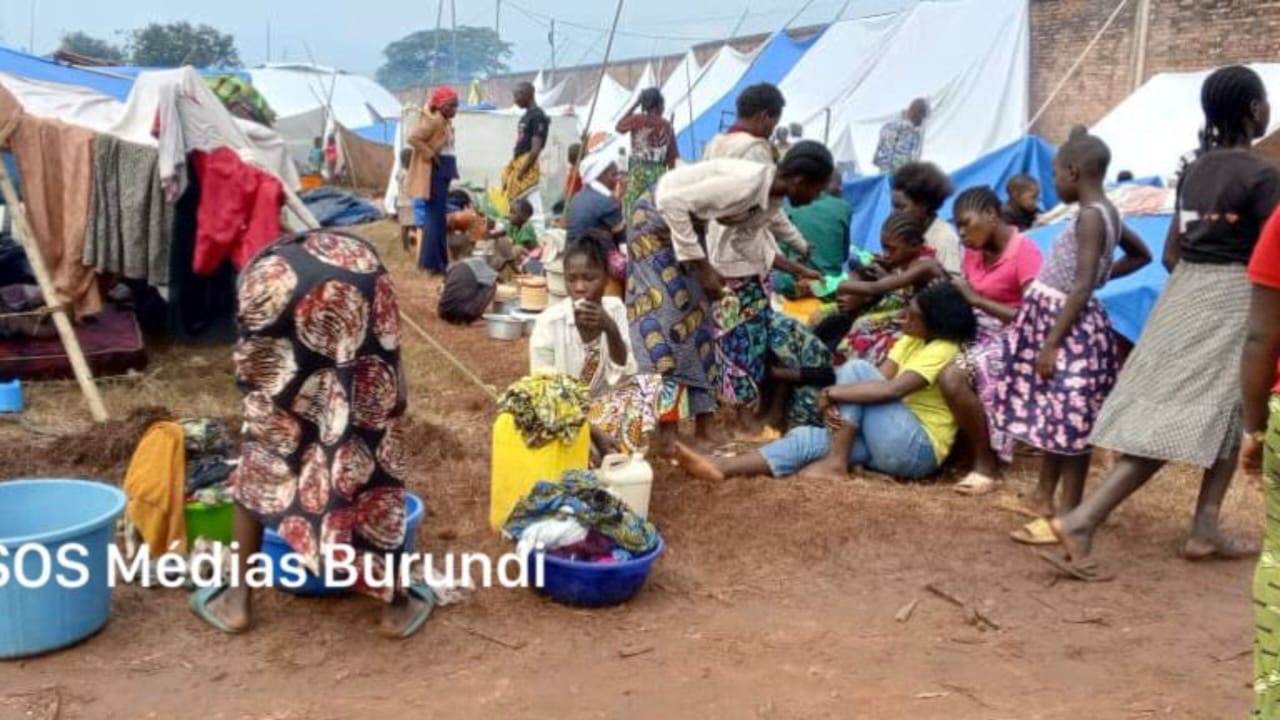Measles outbreak at Makombe transit camp: Congolese refugee children particularly affected

SOS Médias Burundi
Rumonge, June 24, 2025 – At the Makombe transit center, located in Rumonge province (southwest Burundi), a measles outbreak is causing serious concern among health authorities. Congolese refugee children, arriving in large numbers after fleeing the war in eastern DRC, are bearing the heaviest toll.
For several days, a measles epidemic has been spreading at this transit center situated on Mutambara hill, in the Gatete area, Rumonge commune and province. The main victims are Congolese refugee children who fled the violence in eastern Democratic Republic of Congo.
According to the camp officials, over 1,090 Congolese refugees are currently housed there. Every day, new arrivals—mostly women and children—cross Lake Tanganyika to reach Rumonge from the Fizi territory and surrounding areas in South Kivu. They are fleeing increasingly violent clashes between the Congolese army, supported by local militias known as « Wazalendo » and Burundi, against local armed groups linked to the M23 rebel movement—the armed group that now controls the main towns of North Kivu and South Kivu provinces since the beginning of the year. Kinshasa accuses Rwanda of backing M23, a claim that the Rwandan government continues to deny.
The precarious living conditions of these refugees—overcrowding, poor hygiene, and close quarters—facilitate the rapid spread of measles, a disease particularly dangerous for young children. Cases were reported upon arrival, notably at the Rumonge checkpoint of the Air, Borders, and Foreigners Police (PAFE).
In response to this alarming situation, Burundian health services intervened urgently. A vaccination campaign was quickly launched within the camp to immunize children who are still healthy and to treat those already infected.
Makombe transit center officials emphasize that the site is only a temporary stopover. Refugees stay there briefly before being transferred to other camps mainly located in the east, northeast, and southeast of Burundi.

